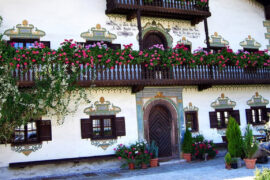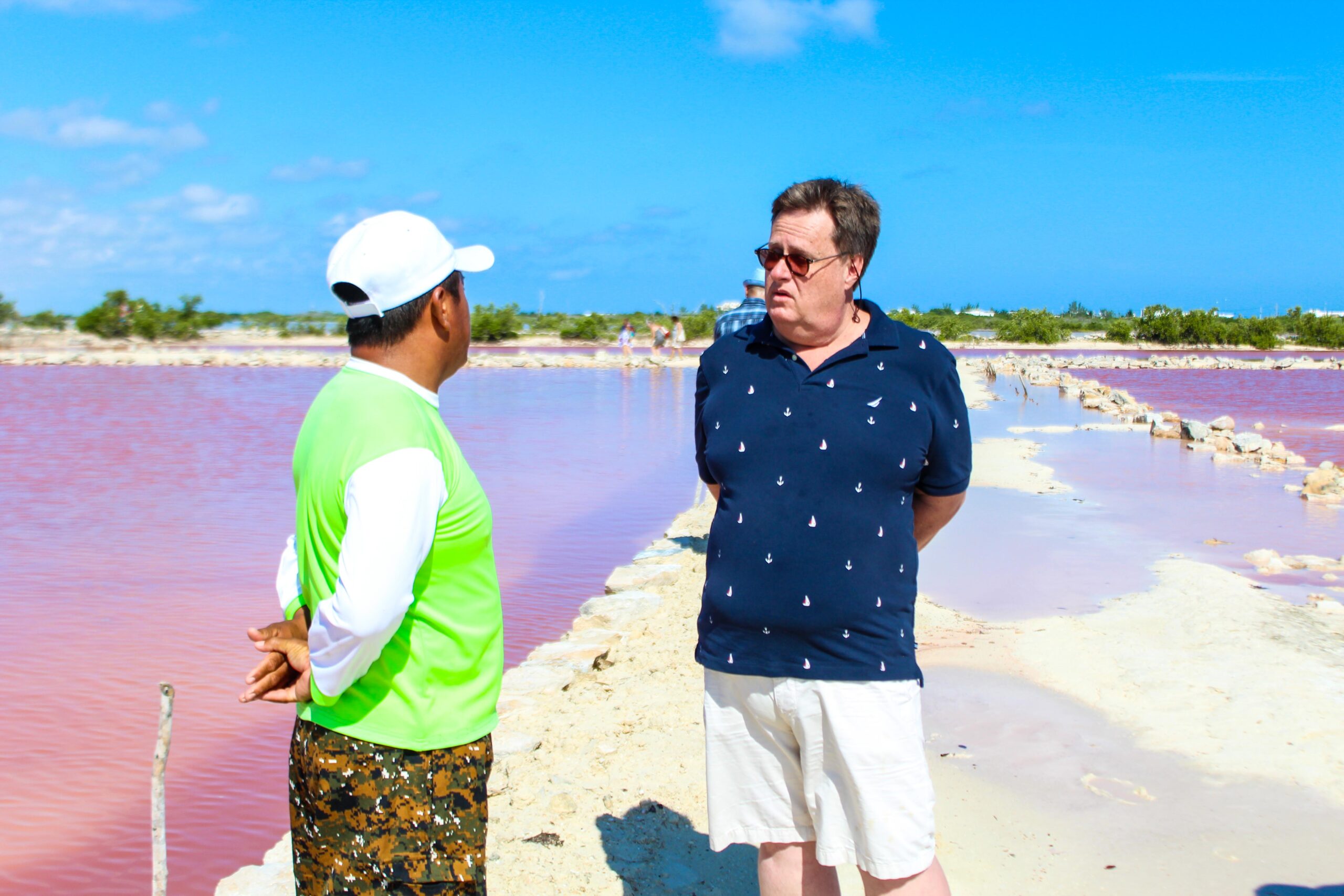
“Life is a tour; we are all tourists.”
Dr. P.S. Jagadeesh Kumar

Travelers Versus Tourists: An Introduction
Over the past twenty years, I have viewed hundreds of blogs, websites, and other online resources. One of the most common themes in these online commentaries is pitting travelers versus tourists. Yet, these definitions do not matter much. What truly makes someone a real Fifty Plus Nomad is a determination to know a place well regardless of whether you are a tourist or a traveler.

What is the Difference Between Travelers Versus Tourists?
While both travelers and tourists travel somewhere for pleasure, many online communities pit the two groups against each other, like in the following excerpt from differencebetween.net:
¨tourists are shallow people who care more about boasting that they were in a place than experiencing it. At the same time, travelers blaze new trails and share a much deeper connection with a site by going to the same attractions that the tourists go to, but more deeply. ¨
The City Sidewalks blogs provide excellent examples of the type of materials that pit travelers versus tourists. Here is their definition of the difference between a tourist and a traveler.
From City Sidewalks
- A tourist sticks out, a traveler blends in.
- A tourist eats comfort food; a traveler tries out the local cuisines.
- A tourist only sightsees, a traveler converses with locals.
- Tourists dress for comfort, travelers dress for style and comfort.
- Tourists stick to their native tongue; travelers try to learn the local language.
- Tourists buy the first (overpriced) souvenirs they find; travelers stick it out for the deals.
- Tourists rely on maps; travelers trust their instincts.


The Reality Behind the Travelers Versus Tourists Debate
The argument that travelers are excellent and tourists are bad is arrogant and wrong-headed. I agree with the words of differencebetween.net:
¨Tourism has gained a bit of a bad reputation. Some tourists will go to places and become a nuisance. Other people will act like the stereotype of tourists. However, most tourists do not – it is just far more ordinary to hear about the horror stories than about the millions of respectful tourists. Still, some do not want to be associated with the word ‘tourist’ even if they are doing the same things a tourist does. The people who created this definition are all self-described travelers. ¨
There is a built-in, unfair assumption that independent travel is superior to going as a group, and this is not my experience. Besides, most people I have met with this view usually have many misconceptions about group travel.

The Secret to Getting the Most Out of Your Long-Term Travel Experiences
All these travelers versus tourists discussions miss the two most crucial factors necessary to learn about a given place or the world: time and perspective. Thankfully, Long Term Travelers have the time to get the most out of the travel.
Fortunately, it is also not hard for Long Term Travelers to get the proper perspective. All one needs to do is view your experience as a long-term quest to unveil the layers of understanding about the politics, economics, history, values, religion, customs, and food of the places you visit.

How to Reveal these Layers of Understanding
Long Term Travelers can uncover these layers by frequently moving from place to place and comparing and contrasting life in various parts of the world. (Semester at Sea provides a once-in-a-lifetime opportunity to do this). You can also unravel these layers by staying in one place and getting to know it in depth or spending extended periods living in several different countries.
If you do it, take time to get the most out of the long-term travel lifestyle. If you are going to be in a place for enough time, learn the language. If it is challenging to learn the language, learn about locals’ lives in English whenever possible.
I have discovered that there is no right way to get to know a place. Instead, consider partaking in a combination of experiences to get your arms around a place. (Generally, I need to spend two to three months in the area to do all these activities):
- Group Tours provide a basic knowledge of a place’s history, culture, politics, and economics.
- Independent travel gives you the time to explore your interests and discover daily life in a new place without pressure to accommodate other people’s interests.
- Volunteer and learning vacations allow you to get to know and befriend locals and understand what their lives feel,
Each type of experience helps peel different layers necessary to understand and appreciate life in other parts of the world. If you visit a place for two weeks, you will not get to know a place that well regardless of how you travel there. The way you travel will teach you different things about a place, but ultimately you will only have a superficial view of the place.

A Personal Note
I have discovered that the more I know, the less I know about a place. When I get to see a place, I inevitably find out other things I would like to know. I do not think I will completely understand anything about any place, which is the fun part of being a Fifty Plus Nomad.
Whenever someone asks me, “Do you have anything left to see?” I always responded that I could continue to travel happily for the rest of my life. There is still a lot left to discover.

¨Doing¨ a Country
I always cringe (interiorly) when someone says they have “done” a country. I do not think anyone can “do” a country (including locals). I do not believe I’ve “done” Mexico or Italy even though I have:
- Spent a long time in Italy (six months) and Mexico (four and a half years).
- Become conversational in Italian and Spanish.
- Visited most of the Italian and Mexican provinces.
- Lived with fifteen Italian and Mexican families.
- Read close to two hundred books about Italy and Mexico.

You Never Really Get Enough Knowledge to Know a Place Well
I feel like through these experiences, I have amassed enough knowledge to draft a book or teach a class about visiting, traveling, and living in Italy and Mexico. But I know that even after I have finished these books and courses, I will never stop learning about a place because:
- Some students and readers will have suggestions and ideas to teach me about Italy and Mexico.
- There is so much left to learn, see, and experience.
- I will change some of my impressions of both countries over time.
- Italy and Mexico themselves are constantly changing.

Fifty Plus Nomad offers personalized workshops and courses in Spanish, English, Living and Traveling in Mexico, and Long-Term Travel Book a Two-hour Free Sample Introductory Session

Some Additional Posts Related to Fifty Plus Nomad‘s Courses and Workshop, Blog, Biographies, Definitions, and News
Fifty Plus Nomad Is Proud to Be Mentioned as an Expert on Home Exchanges in a Redfin Blog Post
Learn Spanish or English Like A Polyglot Using Fifty Plus Nomad’s Exclusive Polyglot Method
10 Reasons I am an Expat Retiree in Mexico Versus Costa Rica
Aprende Inglés con un Hablante Nativo en Mérida, México o En Linea a Través de Clases Intensivas y Personalizadas
20 Ways Fifty Plus Nomad Can Help You Become a More Successful Extended Round the World Traveler and Expat
Want to Find Out What Makes the Yucatan So Unique? Take Fifty Plus Nomad’s Exclusive Yucatan Culture and Society Workshop
Failed to Learn Spanish Before? Want to Speak Spanish Confidently? Take Fifty Plus Nomad’s Exclusive Intensive One-on-One Spanish Course
Experience an Intimate, Authentic Rustic Home-Cooked Yucatan Meal in a Colonial Home in Merida’s Historic Centro
Give Me One Week, and I’ll Show You How to Travel Long Term Round the World On Any Budget
Join Us for a One of a Kind Chance to Experience Traditional Yucatan Food and Culture at a Colonial Home in Merida’s Historic Centro
Take Fifty Plus Nomad’s Living and Traveling in Mexico Workshop and Find Out My Secrets for Creating the Life of Your Dreams in Mexico
Planning to Travel Long-Term Around Latin America and Spain? Why Not Start Your Adventures With Our Survival Spanish for Long Term Travel Workshop Online or In Merida?
Learn English 1-On-1 Using the Proven Polyglot Method with a Native Speaker in Merida or Online
10 Places and Topics Not Included in the Fifty Plus Nomad Blog
The Best Home For US and Canadian Long Term Travelers Over 50: Fifty Plus Nomad
A Fifty Plus Nomad is an Adventurous Long Term Traveler Or Expat Over 50
Pros and Cons of the Top 10 Ways to Study a Foreign Language (From 40 Years of Personal Experience)
Join Fifty Plus Nomad’s Long Term Travelers and Expats Over 50 Facebook Group


























